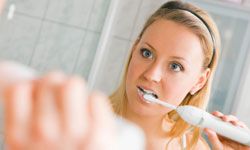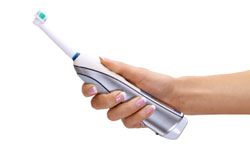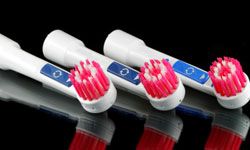Lots of people these days use electric toothbrushes to keep their pearly whites nice and bright. But are they really better? Yes, say dentists, who overwhelmingly recommend them as the best means of keeping your teeth clean and free from plaque and its damaging effects. Yet simply purchasing an electric toothbrush doesn't guarantee great results. You also need to make sure you brush at least twice daily, spend at least two minutes a session brushing and use the proper brushing technique (yes, there's a technique to it).
Before you rush out to buy an electric toothbrush, do a little research. First, electric toothbrushes aren't the same as battery-powered toothbrushes, which are similar to manual brushes but use a AA battery to make the bristles vibrate a little, thus providing some extra cleaning. True electric toothbrushes are rechargeable units that plug into the wall. You change the brush heads every three to six months and keep the handle, which receives the charge. The heads comes in different shapes and sizes and work differently. They may oscillate, vibrate, rotate or use sonic technology [source: Oral B].
Advertisement
Electric brushes also come with various features, such as special modes for sensitive teeth, gum massage and whitening. Some come with pressure sensors that let you know if you're brushing too hard, or feature digital reminders to replace your brush head. Most are packaged with extras such as toothbrush holders and travel chargers [source: Oral B].
The major drawback to electric toothbrushes, in many people's opinions, is the cost; starter kits are generally $50 to $75, although you can purchase some for less than $25 or more than $100. In the long run, however, they may not cost much more than manual brushes, as they need to be replaced far less often [sources: Go Ask Alice, Oral B].
Still not sure? Read on for five benefits to going electric.


